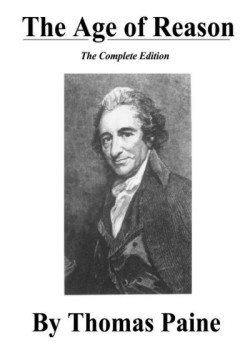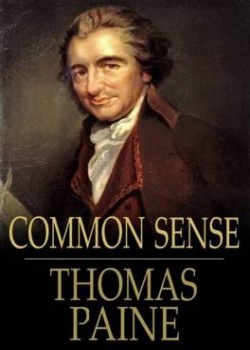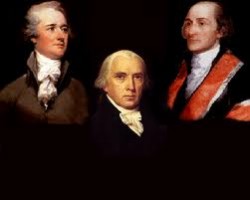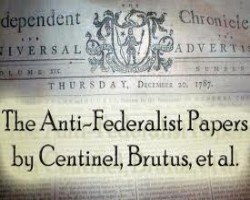CONSTITUTION OF THE UNITED STATES
CHAPTER XXVII
POWERS OF CONGRESS -- PURCHASES OF FOREIGN TERRITORY -- EMBARGOES
§ 1286. But the most remarkable powers, which have been exercised by the government, as auxiliary and implied powers, and which, if any, go to the utmost verge of liberal construction, are the laying of an unlimited embargo in 1807, and the purchase of Louisiana in 1803, and its subsequent admission into the Union, as a state. These measures were brought forward, and supported, and carried, by the known and avowed friends of a strict construction of the constitution; and they were justified at the time, and can be now justified, only upon the doctrines of those, who support a liberal construction of the constitution. The subject has been already hinted at; but it deserves a more deliberate review.
§ 1287. In regard to the acquisition of Louisiana:--The treaty of 1803 contains a cession of the whole of that vast territory by France to the United States, for a sum exceeding eleven millions of dollars. There is a stipulation in the treaty on the part of the United States, that the inhabitants of the ceded territory shall be incorporated into the Union, and admitted, as soon as possible, according to the principles of the federal constitution, to the enjoyment of all the rights, advantages, and immunities of citizens of the United States.
§ 1288. It is obvious, that the treaty embraced several very important questions, each of them upon the grounds of a strict construction full of difficulty and delicacy. In the first place, had the United States a constitutional authority to accept the cession and pay for it? In the next place, if they had, was the stipulation for the admission of the inhabitants into the Union, as a state, constitutional, or within the power of congress to give it effect?
§ 1289. There is no pretence, that the purchase, or cession of any foreign territory is within any of the powers expressly enumerated in the constitution. It is no where in that instrument said, that congress, or any other department of the national government, shall have a right to purchase, or accept of any cession of foreign territory. The power itself (it has been said) could scarcely have been in the contemplation of the framers of it. It is, in its own nature, as dangerous to liberty, as susceptible of abuse in its actual application, and as likely as any, which could be imagined, to lead to a dissolution of the Union. If congress have the power, it may unite any foreign territory whatsoever to our own, however distant, however populous, and however powerful. Under the form of a cession, we may become united to a more powerful neighbour or rival; and be involved in European, or other foreign interests, and contests, to an interminable extent. And if there may be a stipulation for the admission of foreign states into the Union, the whole balance of the constitution may be destroyed, and the old states sunk into utter insignificance. It is incredible, that it should have been contemplated, that any such overwhelming authority should be confided to the national government with the consent of the people of the old states. If it exists at all, it is unforeseen, and the result of a sovereignty, intended to be limited, and yet not sufficiently guarded. The very case of the cession of Louisiana is a striking illustration of the doctrine. It admits, by consequence, into the Union an immense territory, equal to, if not greater, than that of all the United States under the peace of 1783. In the natural progress of events, it must, within a short period, change the whole balance of power in the Union, and transfer to the West all the important attributes of the sovereignty of the whole. If, as is well known, one of the strong objections urged against the constitution was, that the original territory of the United States was too large for a national government; it is inconceivable, that it could have been within the intention of the people, that any additions of foreign territory should be made, which should thus double every danger from this source. The treaty-making power must be construed, as confined to objects within the scope of the constitution. And, although congress has authority to admit new states into the firm, yet it is demonstrable, that this clause had sole reference to the territory then belonging to the United States; and was designed for the admission of the states, which, under the ordinance of 1787, were contemplated to be formed within its old boundaries. In regard to the appropriation of money for the purposes of the cession the case is still stronger. If no appropriation of money can be made, except for cases within the enumerated powers, (and this clearly is not one,) how can the enormous sum of eleven millions be justified for this object? If it be said, that it will be "for the common defence, and general welfare" to purchase the territory, how is this reconcileable with the strict construction of the constitution? If congress can appropriate money for one object, because it is deemed for the common defence and general welfare, why may they not appropriate it for all objects of the same sort? If the territory can be purchased, it must be governed; and a territorial government must be created. But where can congress find authority in the constitution to erect a territorial government, since it does not possess the power to erect corporations?
§ 1290. Such were the objections, which have been, and in fact may be, urged against the cession, and the appropriations made to carry the treaty into effect. The friends of the measure were driven to the adoption of the doctrine, that the right to acquire territory was incident to national sovereignty; that it was a resulting power, growing necessarily out of the aggregate powers confided by the federal constitution; that the appropriation might justly be vindicated upon this ground, and also upon the ground, that it was for the common defence and general welfare. In short, there is no possibility of defending the constitutionality of this measure, but upon the principles of the liberal construction, which has been, upon other occasions, so earnestly resisted.
§ 1291. As an incidental power, the constitutional right of the United States to acquire territory would seem so naturally to flow from the sovereignty confided to it, as not to admit of very serious question. The constitution confers on the government of the Union the power of making war, and of making treaties; and it seems consequently to possess the power of acquiring territory either by conquest or treaty. If the cession be by treaty, the terms of that treaty must be obligatory; for it is the law of the land. And if it stipulates for the enjoyment by the inhabitants of the rights, privileges, and immunities of citizens of the United States, and for the admission of the territory into the Union, as a state, these stipulations must be equally obligatory. They are within the scope of the constitutional authority of the government, which has the right to acquire territory, to make treaties, and to admit new states into the Union.
§ 1292. The more recent acquisition of Florida, which has been universally approved, or acquiesced in by all the states, can be maintained only on the same principles; and furnishes a striking illustration of the truth, that constitutions of government require a liberal construction to effect their objects, and that a narrow interpretation of their powers, however it may suit the views of speculative philosophers, or the accidental interests of political parties, is incompatible with the permanent interests of the state, and subversive of the great ends of all government, the safety and independence of the people.
§ 1293. The other instance of an extraordinary application of the implied powers of the government, above alluded to, is the embargo laid in the year 1807, by the special recommendation of President Jefferson. It was avowedly recommended, as a measure of safety for our vessels, our seamen, and our merchandise from the then threatening dangers from the belligerents of Europe; and it was explicitly stated "to be a measure of precaution called for by the occasion;" and "neither hostile in its character, nor as justifying, or inciting, or leading to hostility with any nation whatever." It was in no sense, then, a war measure. If it could be classed at all, as flowing from, or as an incident to, any of the enumerated powers, it was that of regulating commerce. In its terms, the act provided, that an embargo be, and hereby is, laid on all ships and vessels in the ports, or within the limits or jurisdiction, of the United States, &c. bound to any foreign port or place. It was in its terms unlimited in duration; and could be removed only by a subsequent act of congress, having the assent of all the constitutional branches of the legislature.
§ 1294. No one can reasonably doubt, that the laying of an embargo, suspending commerce for a limited period, is within the scope of the constitution. But the question of difficulty was, whether congress, under the power to regulate commerce with foreign nations, could constitutionally suspend and interdict it wholly for an unlimited period, that is, by a permanent act, having no limitation as to duration, either of the act, or of the embargo. It was most seriously controverted, and its constitutionality denied in the Eastern states of the Union, during its existence. An appeal was made to the judiciary upon the question; and it having been settled to be constitutional by that department of the government, the decision was acquiesced in, though the measure bore with almost unexampled severity, upon the Eastern states; and its ruinous effects can still be traced along their extensive seaboard. The argument was, that the power to regulate did not include the power to annihilate commerce, by interdicting it permanently and entirely with foreign nations. The decision was, that the power of congress was sovereign, relative to commercial intercourse, qualified by the limitations and restrictions contained in the constitution itself. Non-intercourse and Embargo laws are within the range of legislative discretion; and if congress have the power, for purposes of safety, of preparation, or counteraction, to suspend commercial intercourse with foreign nations, they are not limited, as to the duration, any more, than as to the manner and extent of the measure.
§ 1295. That this measure went to the utmost verge of constitutional power, and especially of implied power, has never been denied. That it could not be justified by any, but the most liberal construction of the constitution, is equally undeniable. It was the favourite measure of those, who were generally the advocates of the strictest construction. It was sustained by the people from a belief, that it was promotive of the interests, and important to the safety of the Union.
§ 1296. At the present day, few statesmen are to be found, who seriously contest the constitutionality of the acts respecting either the embargo, or the purchase and admission of Louisiana into the Union. The general voice of the nation has sustained, and supported them. Why, then, should not that general voice be equally respected in relation to other measures of vast public importance, and by many deemed of still more vital interest to the country, such as the tariff laws, and the national bank charter? Can any measures furnish a more instructive lesson, or a more salutary admonition, in the whole history of parties, at once to moderate our zeal, and awaken our vigilance, than those, which stand upon principles repudiated at one time upon constitutional scruples, and solemnly adopted at another time, to subserve a present good, or foster the particular policy of an administration? While the principles of the constitution should be preserved with a most guarded caution, and a most sacred regard to the rights of the states; it is at once the dictate of wisdom, and enlightened patriotism to avoid that narrowness of interpretation, which would dry up all its vital powers, or compel the government (as was done under the confederation,) to break down all constitutional barriers, and trust for its vindication to the people, upon the dangerous political maxim, that the safety of the people is the supreme law, (salus populi suprema lex;) a maxim, which might be used to justify the appointment of a dictator, or any other usurpation.
§ 1297. There remain one or two other measures of a political nature, whose constitutionality has been denied; but which, being of a transient character, have left no permanent traces in the constitutional jurisprudence of the country. Reference is here made to the Alien and Sedition laws, passed in 1798, both of which were limited to a short duration, and expired by their own limitation. One (the Alien act) authorized the president to order out of the country such aliens, as he should deem dangerous to the peace and safety of the United States; or should have reasonable grounds to suspect to be concerned in any treasonable, or secret machinations against the government of the United States, under severe penalties for disobedience. The other declared it a public crime, punishable with fine and imprisonment, for any persons unlawfully to combine, and conspire together, with intent to oppose any measure or measures of the United States, &c.; or with such intent, to counsel, advise, or attempt to procure any insurrection, unlawful assembly, or combination; or to write, print, utter, or publish, or cause, or procure to be written, or willingly to assist in writing, &c., any false, scandalous, and malicious writing or writings against the government of the United States, or either house of congress, or the president, with intent to defame them, or to bring them into contempt, or disrepute, or to excite against them the hatred of the people, or to stir up sedition; or to excite any unlawful combination for opposing, or resisting any law, or any lawful act of the president, or to resist, oppose, or defeat any such law or act; or to aid, encourage, or abet any hostile designs of any foreign nations against the United States. It provided, however, that the truth of the writing or libel might be given in evidence; and that the jury, who tried the cause, should have a right to determine the law and the fact, under the direction of the court, as in other cases.
§ 1298. The constitutionality of both the acts was assailed with great earnestness and ability at the time; and was defended with equal masculine vigour. The ground of the advocates, in favour of these laws, was, that they resulted from the right and duty in the government of self-preservation, and the like duty and protection of its functionaries in the proper discharge of their official duties. They were impugned, as not conformable to the letter or spirit of the constitution; and as inconsistent in their principles with the rights of citizens, and the liberty of the press. The Alien act was denounced, as exercising a power not delegated by the constitution; as uniting legislative and judicial functions, with that of the executive; and by this Union as subverting the general principles of free government, and the particular organization and positive provisions of the constitution. It was added, that the Sedition act was open to the same objection, and was expressly forbidden by one of the amendments of the constitution, on which there will be occasion hereafter to comment. At present it does not seem necessary to present more than this general outline, as the measures are not likely to be renewed; and as the doctrines, on which they are maintained, and denounced, are not materially different from those, which have been already considered.







The most important project on this website is "THE WORKS."
This is the place where you can read the words of the founding fathers and those who had a VERY BIG part in the founding of this country.
Not only do we have the Federalist and the Anti-Federalist Papers, but we also have other Constitutional Commentaries that were written shortly after the Constitution was ratified.